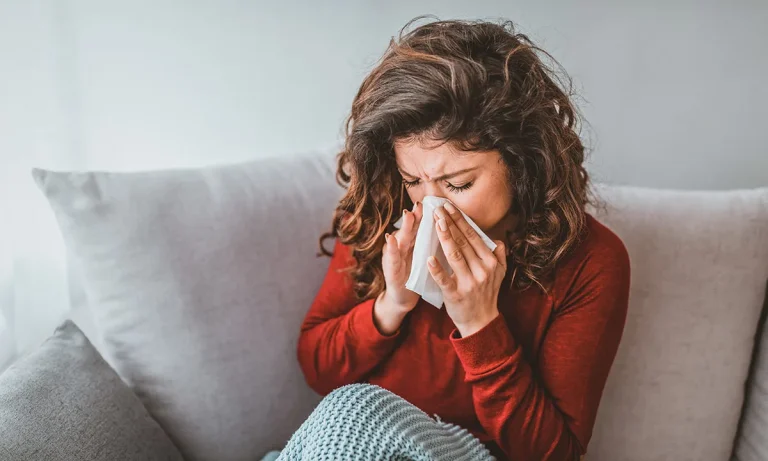Although a cold or influenza (the flu) can develop itself at any time of the year, cases usually increase during the cold and flu season, which usually ranges from October until April or May and peaks from December through February. Protect yourself from cold and flu as being sick with a cold or the flu may be awful. Here are some useful tips to stay healthy during cold and flu season.
WHAT ARE THE CAUSES OF COLD AND FLU?
Both the common cold and the flu are viral infections that affect the respiratory system. While the flu is caused by influenza viruses, the common cold is caused by different viruses, most commonly rhinoviruses. The viruses are transmitted in both cases through droplets released during coughing, talking, or sneezing by an infected individual. You may inhale these droplets if you are standing or sitting close to a sick person. You can even pick them up once they have settled onto an object, such as a doorknob. Then, when you contact your eyes, nose, or mouth, you can transfer them to yourself.

COLD AND FLU PREVENTION
The following tips will help you to protect yourself from cold and flu :
- Maintain distance from symptomatic individuals. Keep a distance from others too if you are sick.
- When you’re sick, stay at home. You can prevent the flu from spreading by staying at home during your recovery.
- Wash your hands with soap or alcohol-based hand sanitizer.
- Don’t touch your eyes, nose, and mouth, and keep your nose and mouth covered.
- When someone touches something contaminated with germs and then touches their eyes, nose, or mouth, the germs can be transferred.
- Disinfect and clean frequently touched surfaces.
- Make lifestyle changes such as eating a healthy diet, reducing stress, exercising regularly, and getting enough sleep.
- Drink adequate water. To fight the infection, your body needs a lot of water. You can also drink herbal tea. These can help you stay hydrated while soothing your discomfort. Avoid alcohol and caffeine.
- Don’t bite your nails. Your fingers touch every surface and your nails collect bacteria and germs. By directly entering your mouth and nose by touching your face or biting your nails, those germs can make you sick.
- You can spread germs through clothes, towels, or bedding. Use color-safe bleach to kill bacteria while washing items in hot water.
- Boost your immune system by including vitamins and minerals in your diet. According to several studies, vitamin C can help reduce the duration of colds or even prevent them. Vitamin D3 has been found to help your immune system, and studies have shown that zinc may shorten the duration of a common cold.
- Get some fresh air. Sickness easily spreads in winter as we stay indoors and share the same air. Allow some fresh air in or go for a brief walk or you can use an air purifier.
- Take medications. While some medications treat specific symptoms, others treat many flu symptoms simultaneously. Pain relievers reduce fever and body aches. Take the correct dose or contact a healthcare provider.

If you have the flu, it is best to rest, drink fluids, and sleep as much as possible. The majority of flu symptoms go away in one to two weeks. Contact our experts if your cold and flu symptoms start to improve only to quickly worsen or if they still persist after two weeks.
